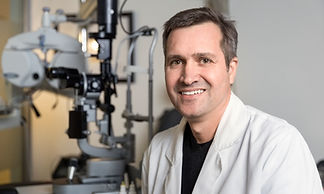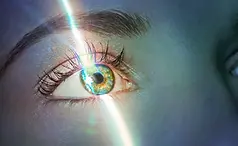Vision & Refractive Errors | Keratoconus | Cataract Surgery
You are in safe hands with our cataract surgery
Cataracts are clouding of the lens of the eye usually due to ageing. This blocks the light from passing through the lens and therefore makes it difficult to see clearly and can even cause blindness over time. The treatment for this is to remove the cloudy lens from within the eye and replace it with a clear plastic lens implant.
Here at Viewpoint Vision Services Ltd we have an exceptional team who can undertake this treatment at our independent clinic in St Helens. Get in touch with us today to book an appointment.
“New Intensity of Colours”
Cataract surgery is one of the most common eye surgeries performed today. It is quick, safe and a great investment to improve the quality of your life. The surgery is normally performed as an out-patient basis, is painless under topical anaesthesia without need for injections. We normally operate on both eyes on the same day with rapid recovery of vision and reduced complications. Surgery normally takes less than 10-minutes per eye.
With modern cataract surgery it is possible to resume most normal activities within 24 to 48 hours.
Occasionally, the capsule that once contained your natural lens may become cloudy and you may experience reduced vision in the weeks or months following cataract surgery. This is called an after-cataract. If you experience this, you will need to return to our St Helens clinic to undergo a common procedure called a YAG laser capsulotomy. During this procedure, the surgeon will use a laser to cut a hole in the capsule so that light can once again pass through to the retina unobstructed.

Our experience
Our team of cataract Consultants and staff are among the most experienced in the UK with the highest levels of innovation in modern cataract treatment.
-
We helped to develop some of the advanced implants used in cataract surgery today (accommodative Implants)
-
Our team was one of the first in the UK to offer Immediate Sequential Bilateral Cataract Surgery (ISBCS)- i.e., cataract surgery to both eyes on the same day.

Our facility
Our facility based within St Helens Hospital is structured from the start to optimise cataract and other vision correction procedures. It offers advantages in speed and efficiency over other hospitals and eye clinics as well as reduced risk of infections and other complications.
Mr Chitkara, our lead Consultant, was responsible for designing the one-stop cataract pathway for the local Trust Hospital long before this was adopted elsewhere in the UK.
We do not have a waiting list and you will be offered a choice of surgery dates at your initial consultation.

Freedom from glasses
Most NHS cataract surgery involves replacing the clouded lens with a simple or standard monofocal lens. This lens can focus for one vision either distance, intermediate or near vision only. Because this lens does not flex or accommodate like the natural lens, the patient who receives this standard lens will probably need additional glasses to see the full range of vision. However, in our clinic, we offer the choice of more advanced and sophisticated multifocal implants which allow you to focus the full range of vision from near to far.
The types of multifocal implants include the most modern trifocals and EDOF (Extended Depth of Focus implants). The choice of implants is customised to your individual needs allowing complete freedom from glasses.

Some of our other treatments

Laser eye surgery
Laser eye surgery may help with conditions including short-sightedness, far-sightedness, astigmatism, and presbyopia.

Keratoconus
Keratoconus is a degenerative disorder of the eye in which structural changes within the cornea cause it to thin and change to a more conical shape than its normal gradual curve.

Lens replacement
Refractive Lens Exchange, or Natural Lens Replacement, is a process where the natural lens is replaced by an advanced lens Implant to correct vision.

Make an appointment
If you have problems with clouded vision, get in touch with us to discuss how cataract surgery may alleviate the problem.



